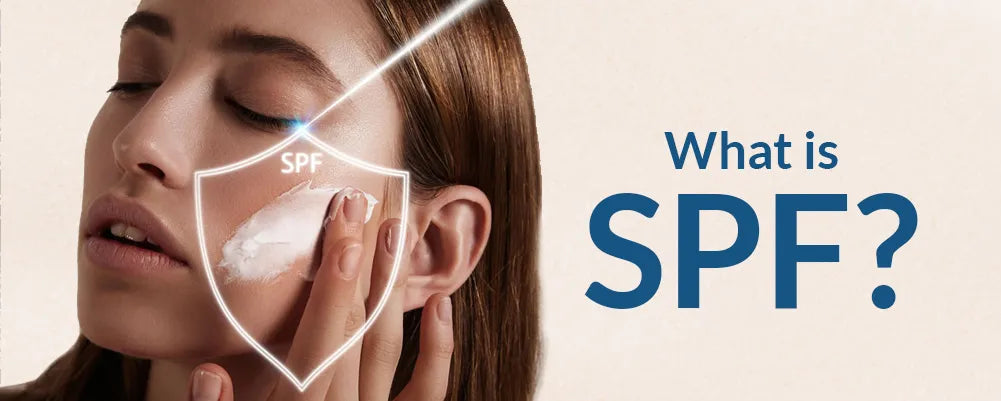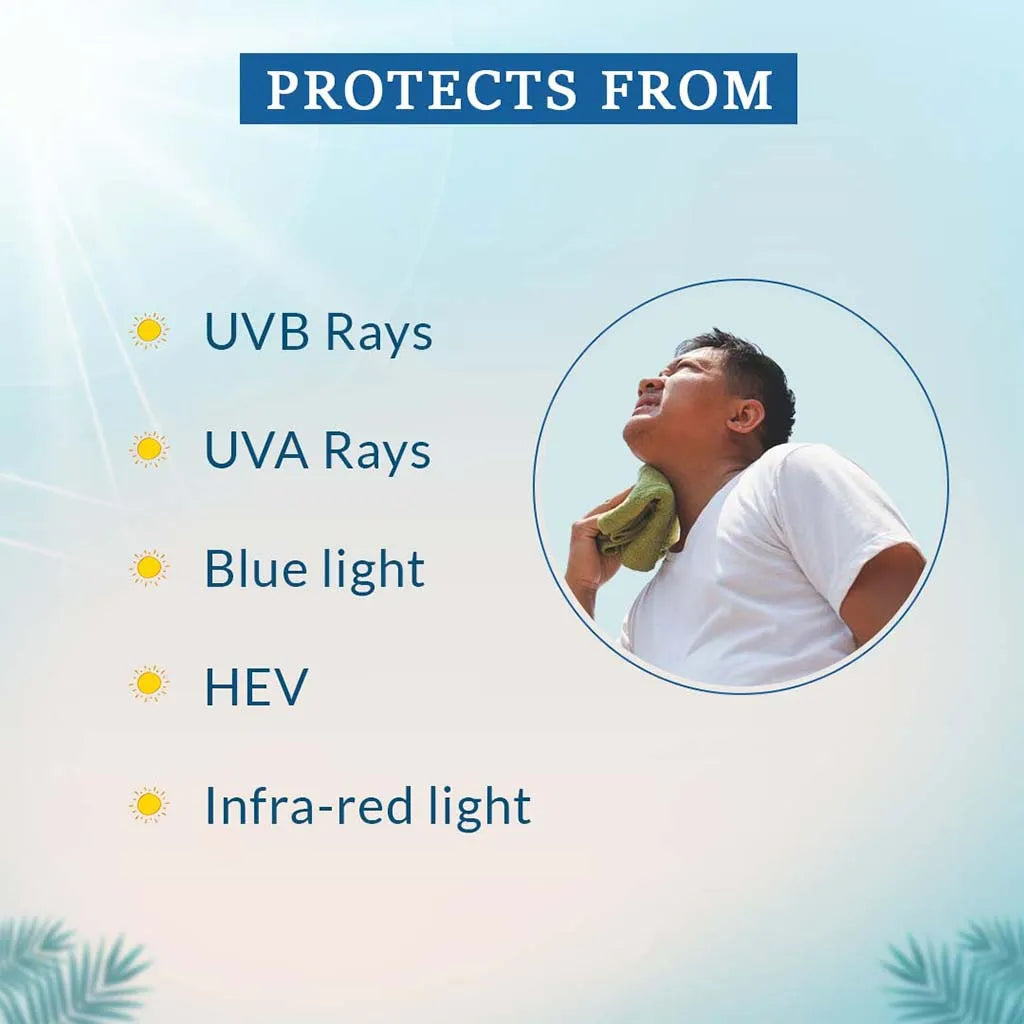
What is SPF?
By: Sandip KumarSun protection factor (SPF) is a term commonly used in the cosmetics industry to describe the level of protection a sunscreen product provides against the harmful effects of solar ultraviolet (UV) radiation. It is a measure of how much longer it takes for your skin to burn when exposed to the sun while wearing sunscreen, compared to how quickly your skin would burn without any protection.
The SPF number on a sunscreen product indicates the amount of UVB radiation it can block. UVB radiation is the primary cause of sunburn and is also responsible for skin damage that can lead to skin cancer. The higher the SPF number, the more protection the sunscreen provides against UVB radiation.
For example, if it takes 10 minutes for your skin to start burning when exposed to the sun without any sunscreen, then sunscreen with an SPF of 15 will provide protection for 150 minutes (10 minutes x 15). However, it is important to note that no sunscreen can provide complete protection from the sun, and reapplication is necessary for continued protection.
Choosing a sunscreen with an appropriate SPF level for your skin type and the intensity of the sun exposure you will be experiencing is important. Sunscreen with an SPF of at least 30 is recommended for everyday use, and a higher SPF is recommended for extended sun exposure or outdoor activities.
Which SPF is best?
- Low protection: When SPF is below 15.
- Medium protection: When SPF is between 15 to 29
- High protection: When SPF is between 30 to 49
- Very high protection: When SPF is over 50.
It is also important to remember that SPF only measures protection against UVB radiation, not UVA radiation, which can also cause skin damage and aging. Look for a broad-spectrum sunscreen that not only just protects against UVB but also has a rating of PA+++ or more to ensure complete protection from UVA rays too.
In addition to using sunscreen, it is important to take other precautions to protect your skin from the harmful effects of the sun, such as wearing protective clothing, seeking shade during peak sun hours, and wearing a hat and sunglasses.
In summary, SPF measures the level of protection provided by sunscreen against UVB radiation from the sun. Choosing a sunscreen with an appropriate SPF level and using it in combination with other sun protection measures can help reduce the risk of sun damage, skin aging, and skin cancer.
Why sunscreen is important?
Sunscreen is an essential part of any skincare routine, but it's more than just a beauty product. Sunscreen is crucial in protecting your skin from the harmful effects of the sun, which can cause a range of skin issues, including premature aging, hyperpigmentation, melasma, sunburn, and even skin cancer.
The sun emits ultraviolet (UV) rays, which can penetrate the skin and cause damage to the cells. This damage can lead to premature aging, such as wrinkles and age spots, and can also increase the risk of skin cancer.
When applied to the skin, sunscreen creates a film or a protective shield on the skin and works by absorbing or reflecting these harmful UV rays before they can reach the skin. It typically contains a combination of organic and inorganic compounds that work together to protect the skin. The most common types of UV rays are UVA and UVB, and sunscreen is designed to protect against both.
UVA rays can penetrate deep into the skin and cause long-term damage, while UVB rays are responsible for sunburn. Both types of rays can contribute to skin cancer, so using a broad-spectrum sunscreen that protects against both is essential.
It's important to note that sunscreen should be applied liberally and often, especially when spending time outdoors. Even on cloudy days, UV rays can still penetrate the skin, so wearing sunscreen should be part of your daily routine, 365 days a year. Additionally, sunscreen should be reapplied every two hours or after swimming or excessive sweating.
So, sunscreen is not just another skincare product but a vital tool in protecting your skin from the harmful effects of the sun. Making sunscreen a part of your daily routine can help prevent premature aging and reduce your risk of skin cancer.
Which is the best sunscreen for the face?
CHEMFREE SPF 30: Chemfree SPF 30 is a physical sunscreen that is specially formulated for oily, acne-prone, and sensitive skin. It offers broad spectrum protection against both UVA & UVB rays. It contains the micronized form of physical blockers such as titanium dioxide and zinc oxide. It is a lightweight sunscreen that blends readily on the skin, leaving no white cast on the skin.
Why Chemfree SPF 30?
- Chemical absorber free formulation
- Next Generation micro fine physical blockers
- Suitable for oily, acne-prone, and sensitive skin
- Broad spectrum protection of SPF 30
- No white cast
- Non-comedogenic formulation
FCL Silicone SPF 40: Ultra-light Gold Silicone SPF 40 Translucent Gel is a gel textured sunscreen that is ideal for oily and combination skin. It provides broad spectrum sun protection against various harmful UVA & UVB rays and harmful lights such as blue light, Infra-Red, and high energy visible light. Also, it is antipollution, which means it works effectively against protecting the skin from environmental pollutants. The translucent gel consistency forms an invisible shield on the skin without feeling heavy or greasy.
Why Silicone SPF 40 Translucent Gel?
- Offers UVB protection of SPF 40
- UVA protection of PA+++
- Protects against harmful lights
- Water resistant formulation
- Effective antipollution against PM 2.5
- Non-comedogenic
- Fragrance-free
- Suitable for sensitive, oily, and combination skin
FCL Light Weight SPF 80 Lotion: It is an excellent sunscreen for broad spectrum protection against UVA & UVB rays, the main reason for long term skin damage, premature aging, fine lines, and tanned and pigmented skin due to overexposure to the sun. This lightweight SPF 80 lotion shields the skin from UV rays, skin damaging lights such as blue light, Infrared light, high energy visible lights, etc. Not only it provides the highest protection, but because of its anti-pollution formulation, this sunscreen also protects the skin from harmful environmental pollutants.
Why Lightweight SPF 80 Lotion?
- Highest sun protection from UVB rays with SPF 80
- Broad spectrum protection from UVA rays with PA++++ rating
- Non-comedogenic formulation
- Effective antipollution against PM 2.5
- Protects against harmful lights
- Water-resistant
Tips for using sunscreen!
- Apply sunscreen generously: Most people don't apply enough sunscreen, which can lead to inadequate protection. Two finger rule is the best way to give your skin the protection it needs. Also, do not forget to apply it on the exposed body parts such as the neck, arms, hands, feet, etc.
- Apply sunscreen early: Apply sunscreen at least 15-30 minutes before going outside. This allows time for the sunscreen to absorb into your skin and provide protection.
- Reapply sunscreen often: Sunscreen should be reapplied every two hours or after swimming, sweating, or towel drying. Don't forget to reapply to commonly missed areas such as the ears, neck, and feet.
- Choose the right SPF: Use sunscreen with a minimum SPF of 30, which provides adequate protection against UVB rays. If you have fair skin or are prone to sunburns, you may want to use a higher SPF.
Remember that sunscreen should be used every day, mainly during peak sun hours, which are typically between 10 a.m. and 4 p.m.
Read more - What Is Strawberry Legs? Which Is The Best Treatment For It?


